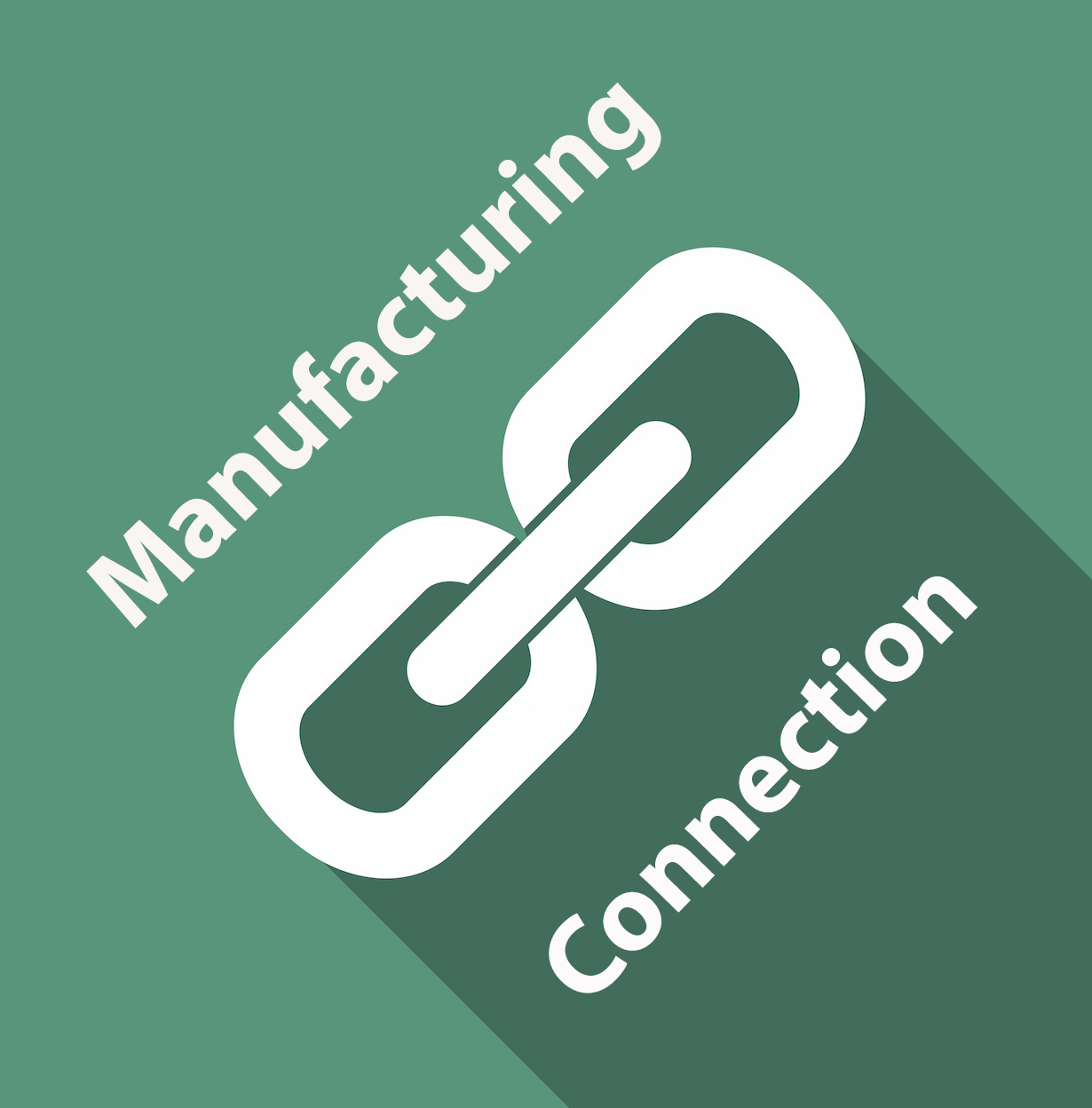
by Gary Mintchell | Sep 9, 2019 | Commentary, Marketing
Google and Other Misdemeanors
I have noticed that over the past few months, the number of people coming to my site via search engines, principally Google, has dropped by something like 40%. Curious, last weekend I took a little time and searched on about a dozen keywords that would be used in the industry.
Media sites just don’t come up in the searches. But what does come up are a ton of ads. The bulk of the rest of the links are suppliers. This is a big change over this time period.
Then I came across a tweet from Jason Fried, founder and CEO of Basecamp. He noticed that when he searched for his company, Basecamp, he came up number 4. The first three were ads from competitors who had worked the words base camp into their URLs or name in some ingenious way. And they had purchased the adwords that placed their ad above the real organic result. He explains all this in a podcast on Rework.
Back to my observation. I appeared seldom, except for my own domain name, and I never saw the major trade journals in the industry. Even ones named IIoT in a search of IIoT. Automation got three hits a couple of pages back on the keyword automation. But it should have had a bunch.
But suppliers are the most prone to buy adwords from Google.
If you think that searches are not biased and show you the most relevant to you, then you are years behind times.
I have noticed a similar effect in Facebook. Of course, its ad strategy came from Google in the person of Sheryl Sandberg. I did marketing for a small retail startup coffee house in Sidney, Ohio. Being local, I went to Facebook. I also spent a few dollars a month on ads.
When I ended the ad campaign, I was pestered with several notices per day about boosting a post for only $10, then for only $5. And our reach started dropping. Suddenly not everyone saw all the posts. The algorithm ensured that. When you’re in a small town with only about 1,000 person reach, you get pretty quick feedback.
Once upon a time, I mostly trusted Google search results. I use it for research constantly. Now, I’m not so sure about where to go for better results. Everyone is in such a rush to maximize ad dollars that they manipulate anything, including us, in the quest for eyes on ads.

by Gary Mintchell | Oct 10, 2016 | Automation
Last Friday, October 7, was National Manufacturing Day. Pointing toward that recognition, I participated in a Twitter Chat with PwC (Bob McCutcheon) and The Manufacturing Institute (Jennifer McNelly). I have participated on several of these. It’s pretty interesting. You can search #MFGTalent on Twitter and see the thread.
That same week, Moira Gunn interviewed Dan Mote, president of the National Academy of Engineering, on her NPR radio show TechNation Radio. You can find the podcast on iTunes or other podcatchers.
During the interview, Mote pointed out, “The key to engineering is being creative, not necessarily the math. You must care about solutions.”
I’ve heard it said that engineers are problem solvers. Most of the math I have studied was only partially about manipulating symbols. It was more about logical thinking and solving problems. For an engineer, math is a tool. Logic is life.
Twitter Chat
Here is a transcript of part of the chat we had to give you a flavor. It gets more interesting as people share links and facts.
Gary Mintchell @garymintchell Welcome to Tweet Chat concerning manufacturing talent. Please chime in. Now for the first question. Q1 Where do you see a manufacturing skills shortage? Or, would you argue that there is none? #MFGTalent #MFGDay16
Bob McCutcheon @MccutcheonBob A1 As opposed to a skills shortage, we see that there is currently a shift in skillset in the manufacturing workforce #MFGTalent
Jennifer McNelly @Jmcnellynam A1 There is a shortage w/ production workers & high-skill employees. 2/3 see talent shortage worsening in next 3 years. #MFGTalent #MFGDay16
TheMfgInstitute @TheMfgInstitute A1 By 2025, 3 million #mfg jobs will need to be filled and 2 million will go unfilled due to skills gap. #MFGTalent #MFGDay16
Bob McCutcheon @MccutcheonBob A1 Factories are getting smarter and the reality is, the next gen of the manufacturing workforce needs to keep up. #MFGTalent
Bob McCutcheon @MccutcheonBob A1 In fact, high percentage of manufacturers are embracing measures to grow & train a workforce that can keep pace with new tech #MFGTalent
Steve Minter @sgminterIW Do estimates of mfg job shortages account for technology changes? #mfgtalent
Jennifer McNelly @Jmcnellynam .@sgminterIW More than 1/3 of manufacturers said that investing in advanced technology will create jobs. #MFGTalent #MFGDay16
Bob McCutcheon @MccutcheonBob Bob McCutcheon Retweeted Steve Minter Industry 4.0 and tech advances are creating a shift in skillset, meaning the type of jobs manufacturers need will change #MFGTalent
Gary Mintchell @garymintchell Following up, Q2 is this just numerical change in jobs or a qualitative change? #MFGTalent
Bob McCutcheon @MccutcheonBob A2 It’s a qualitative change as advanced technology is changing job requirements and descriptions #MFGTalent #MFGDAY16
TheMfgInstitute @TheMfgInstitute A2 Qualitative change! Manufacturers will need skilled workers for advanced manufacturing technologies. #MFGTalent #MFGday16
Shannon Schuyler @ShannonSchuyler We all must work together to create education and training opportunities beyond the classroom for workers to retool their skills #MFGTalent
Jennifer McNelly @Jmcnellynam A2 There will be a change in the type of jobs – high-tech, innovative, and computerized. #MFGTalent #MFGDAY16
Jennifer McNelly @Jmcnellynam .@sgminterIW We need strong public-private partnership. Efforts like WIOA help advance collaboration #certification #Mfgtalent #MFGDay16
Bob McCutcheon @MccutcheonBob We need continued investment in STEM & training development programs in local communities – what are your thoughts @sgminterIW? #MFGTalent
Mike Dillon @mikedillonsf Worth noting – Diverse companies outcompete those lacking diversity & they make better decisions. Promote #workforce #diversity #MFGTalent
In reply to Bob McCutcheon Steve Minter @sgminterIW Most successful co’s I’ve seen taking initiative and forging strong ties w/ local schools, community colleges, etc @MccutcheonBob #MFGTalent
Bob McCutcheon @MccutcheonBob Q3 The focus will be put on jobs tied to #Industry40, with skills based on STEM
In reply to Bob McCutcheon Gary Mintchell @garymintchell @MccutcheonBob Bob, STEM knowledge is essential, but I think we miss the mark if it’s not combined with art, music, literature. #MFGTalent
Gary Mintchell @garymintchell Building on Bob and Steve, Q6, how can mfrs attract these STEM students?
Jennifer McNelly @Jmcnellynam A6 Offer work-based learning like internships & apprenticeships and engage young employees as ambassadors. #MFGTalent #MFGDay16
TheMfgInstitute @TheMfgInstitute A6 Showcase the diverse roles manufacturing can offer! There’s a place for everyone in #mfg. #MFGTalent #MFGDAY16
Bob McCutcheon @MccutcheonBob A6 Having a strong relationship w/ educational institutions / universities to introduce the many facets of mfg will be key #MFGtalent
Bob McCutcheon @MccutcheonBob A6 Manufacturers can recruit STEM students directly from graduation, attend job fairs and provide well-crafted internships #MFGTalent
Jennifer McNelly @Jmcnellynam A6 Check out this Ambassador toolkit to help engage early career leaders @TheMfgInstitute #Mfgtalent #MFGDay16 http://ow.ly/yKld304QKDF
Steve Minter @sgminterIW A6 Manufacturers should also pay attention to onboarding and early career development #mfgtalent
Gary Mintchell @garymintchell As we wrap up, what excites you about the future of manufacturing, technology, and new talent? #MFGTalent
Jennifer McNelly @Jmcnellynam A career in modern #mfg means great pay, challenging opportunities, the ability to lead and learn for a lifetime. #MFGTalent #MFGDay16
In reply to Gary Mintchell
Bob McCutcheon @MccutcheonBob @garymintchell The new, exciting products that our manufacturing floors could produce with the help of tech and talent #MFGTalent
TheMfgInstitute @TheMfgInstitute The future of #manufacturing holds the opportunity to change the world with innovative products! #MFGTalent #MFGDay16
And that seemed to be the best summary. Let’s go change the world.

by Gary Mintchell | Dec 1, 2015 | Marketing, News, Productivity
My new boss was chatting with me in his office. He turned to a shelf with notebooks and pulled one off the shelf. Opening it to a tab, he removed a section and told me to copy it and start my own notebook.
The contents were articles clipped and copied from trade press, B2B, magazines. He had given me a new position as program manager in product development. These were articles on project management and program management. This was my introduction to the trade press.
I subscribed and read a variety of publications over the course of the next 20 years collecting useful articles. Some of the magazines were quick reads. Articles were by people whose titles were “marketing manager” with the contents reflecting that point of view. Some were written by engineers or other practitioners with useful information.
When I became a trade press editor at Control Engineering in 1998, the media landscape was unchanged. It consisted of magazines delivered by the US Postal Service on a more or less regular basis.
Wow, but do we have so many ways of getting information these days. There remains the inevitable tension within the trade press of writing what advertisers want to see in print versus focusing on useful information for readers. Information availability moved rapidly from print to Web to email to Twitter to LInkedIn and Facebook.
Advantages and deficiencies
Web–I always had trouble “bookmarking” Websites to return to and read. Or to develop a regular system to go to my Websites to read what was new. It was usually impossible to see what was new, anyway. On the other hand, the Web is a great place to store large amounts of information whether for media companies or for technology suppliers. What I have always desired is a push notification telling me not only that something changed, but also directing me to what changed.
Pop-up ads and enticements, pop-overs, cluttered pages, proliferation of ads all serve to destroy my motivation to go to media Websites to read articles. The race to create as much ad revenue as possible has reached the point for me that I hate to visit to try to read an article.
You also have to beware the “listicle” article. Many devices are designed to get you to click–top 10, view three ways, here are 6 things you didn’t know about. Sometimes they even make you click each one individually. Know why? The publisher needs to improve page views and therefore ad impressions. I have mostly quit getting suckered in.
What I will do is go to an “advertiser” site for a good technical or business white paper or other such information. Today you are more likely to get the kind of information there that I used to copy into my notebook. Oh, and today, my notebook is Evernote.
Twitter–Initially a great conversation tool, now there is so much noise that I seldom look at the stream. The tools I used to sort through the flood often were killed by Twitter. This killed much of my enthusiasm. I still Tweet. Some people actually find them.
Email–Believe it or not, emails remain the best way of notifying people with reasons to visit a Website or otherwise send information. Maybe someday there will be a ubiquitous chat app (Messenger or Snapchat or Slack?) that would take the place of email–but wouldn’t it just be another form of email? In the meantime, it’s not email but the misuse of email that is annoying.
General media–I’m seeing many more articles in Forbes, The New York Times, Wall Street Journal and other such general media publications that once would be seen only in trade press. Coverage of the Internet of Things, for instance, may be stronger there, as well as coverage of safety and security.
The Future
For the curious, check out the recent Notifications Summit put on by a couple of technology luminaries John Borthwick of Betaworks and Steve Gillmor who is a long-time reporter and analyst of technology. Many hours of video were recorded. They were great presentations and conversations about the developing technologies and uses of notifications.
Start with John Borthwick.
Or go to TechCrunch and search for Steve Gillmor.








